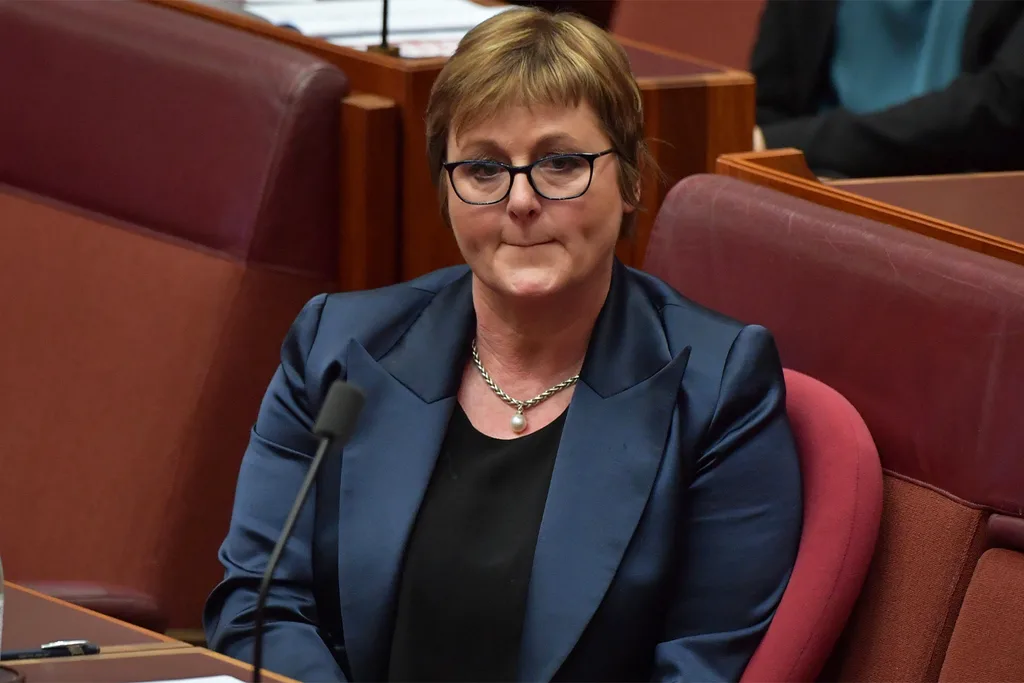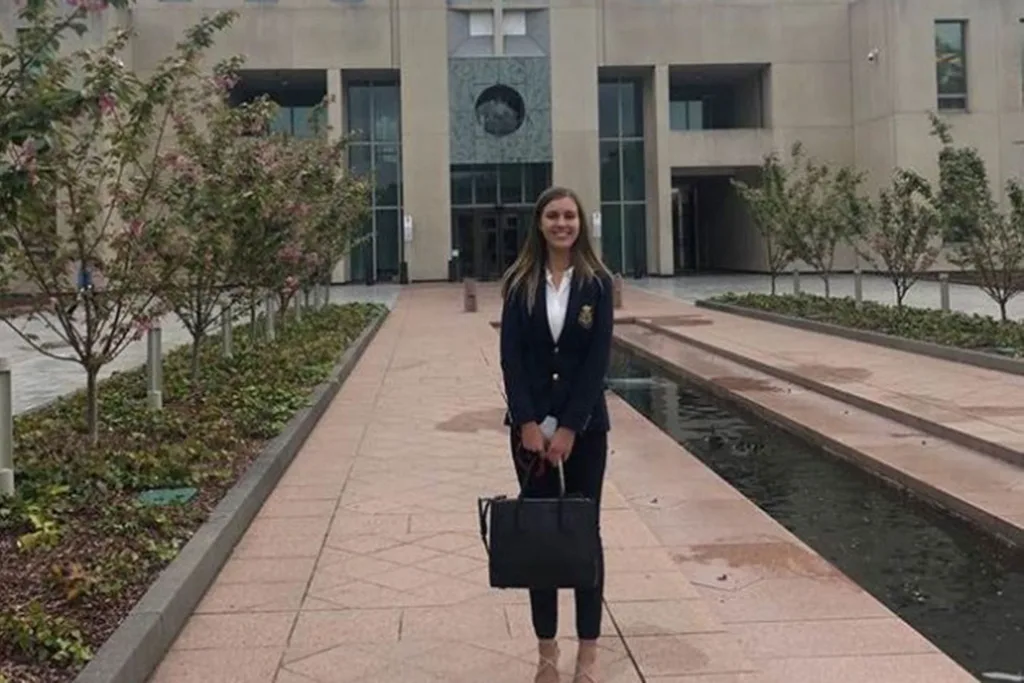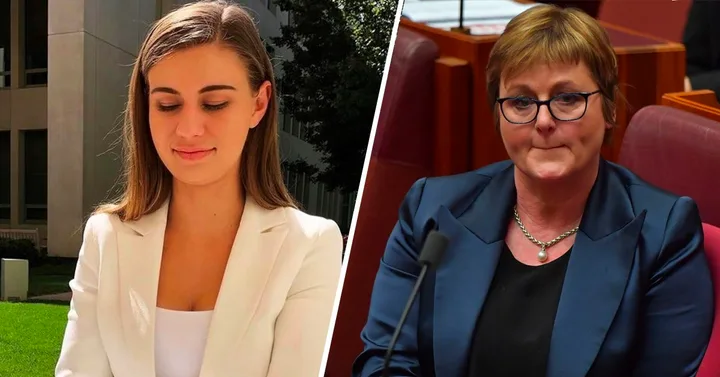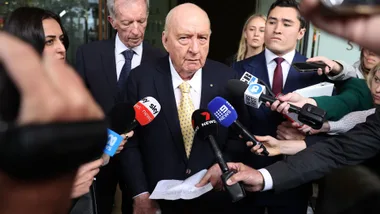“There’s a special place in hell for women who don’t help each other.” I was reminded of Madeleine Albright’s now-famous quote this past month with former Liberal staffer Brittany Higgins’s devastating revelation of her alleged rape in a minister’s office in Parliament House.
I’m sure Ms Albright has reserved a hotter hell hole for men who prey on women by abusing their power. But for some, myself included, one of the greatest disappointments is that Brittany says she sought help from female staffers around her, including superiors and supposed mentors, and was woefully let down. Many have asked: where did the sisterhood go?
As details continue to emerge of a possible government cover-up, as well as a historical rape allegation levelled at attorney general Christian Porter (which he categorically denies), perhaps we shouldn’t be shocked, given the appalling workplace culture for women in Canberra.
And yet we are.
A person who has faced pressure over her response to Higgins’s rape complaint is Defence Minister Linda Reynolds. It was in Reynolds’s office that the alleged rape took place, something she knew about, yet the minister chose to interview Brittany after the incident in that same office. Isn’t it common knowledge that returning to the scene of a crime is triggering for the victim? Where was Reynolds’s duty of care? (To be fair, she publicly apologised later for this deeply inappropriate act.)
Then, this week The Australian reported that Reynolds referred to Higgins as a “lying cow” in front of fellow staffers on February 15, the same day Higgins spoke out about her alleged assault.

Reynolds released a statement in response to the report that did not deny her extraordinary comment. “I have never questioned Ms Higgins’s account of her alleged sexual assault and have always sought to respect her agency in this matter,” said Reynolds. “I did however comment on news reports regarding surrounding circumstances that I felt had been misrepresented.”
Even if the Defence Minister didn’t make the comment in relation to Higgins’s allegations, as a senior member of parliament, heck, as a human, those weaponised, anti-female words should never have passed her lips. Reynolds insists she considers Higgins’s allegations “very serious”, but for me, her actions point to the fact she seems more interested in cushioning the Party than supporting women. It appears I’m not alone. A recent Australian news poll revealed that two-thirds of the population believe the government is more interested in protecting its political interests than the interests of women who make these allegations.
Of course, we know that women (and men) in bullied, toxic environments learn that in order to keep a job, you don’t rock the boat. And when that boat is steered by a man at the top who isn’t sure whether or not a crime has been committed until he checks with his wife, well, clearly there are bigger problems at play.
It’s ironic that this harrowing story continues to unfold in the week leading up to International Women’s Day, a time meant to not only celebrate the strength, resilience and achievements of women, but also to stand in solidarity with one another.

Of course, I’m not just pointing the finger at women here – that would simply add to the blame culture, and there are many players in this sad, sorry tale. But perhaps I just expect more from women, especially the select few who hold senior positions in our government. Where’s that good ol’ female support? Have they worked so long in a desensitised, alpha-male environment that the sisterhood died with Julia Gillard’s prime ministership?
A 2017 Plan International Australia survey of young Australian women said zero per cent – yes, zero! – would consider politics as a career choice. Given recent revelations, my guess is this stat hasn’t shifted in four years. Do you blame them? You’d have to be a sucker for punishment to enter politics right now. But what’s clear is the only way to improve the culture is increase female representation in Parliament. Currently, in the House of Representatives, only 30 per cent of seats are held by women. As politician Kate Ellis tells marie claire in our special International Women’s Day issue (out Monday): “Parliament works better, makes better laws and sets a better example when it looks like the community it represents. We need more women in politics but we also need it to be better for them. Much better.”
Cue applause.
So, as we near International Women’s Day, let’s start demanding that the culture of Australian politics changes to better reflect a modern workplace and, more than that, better reflects who we want to be as a nation.










